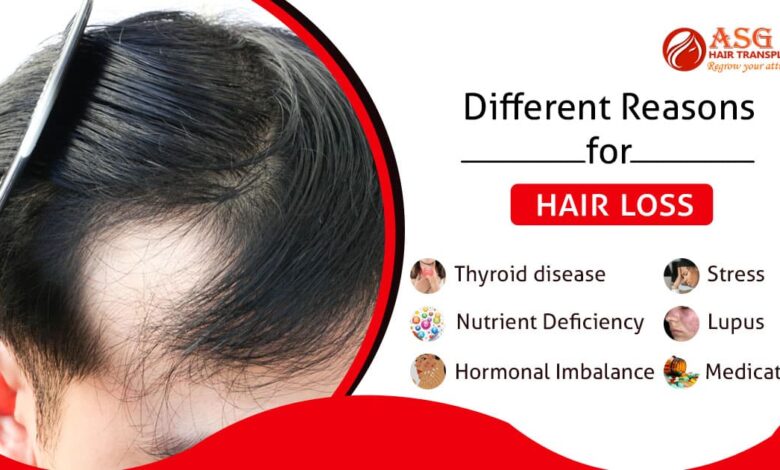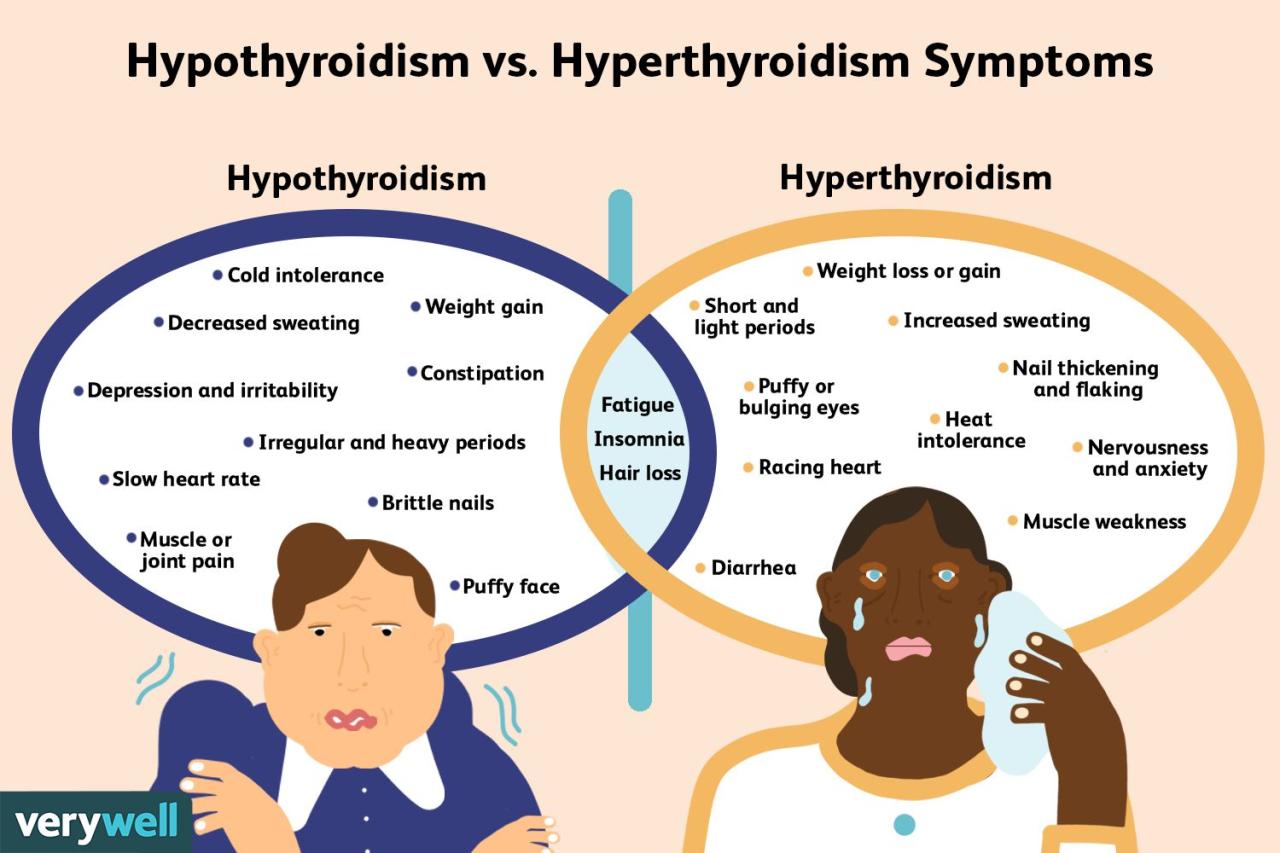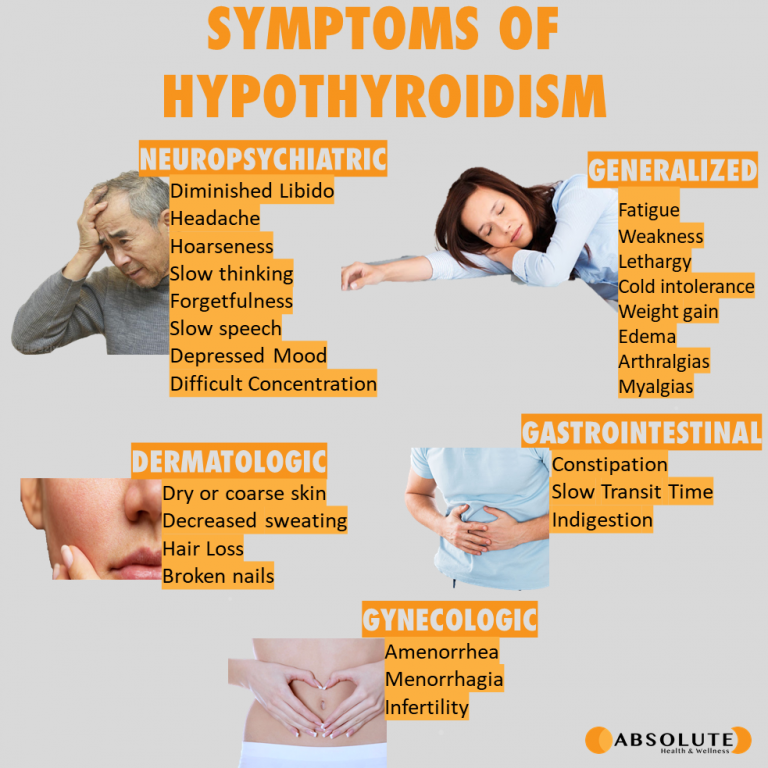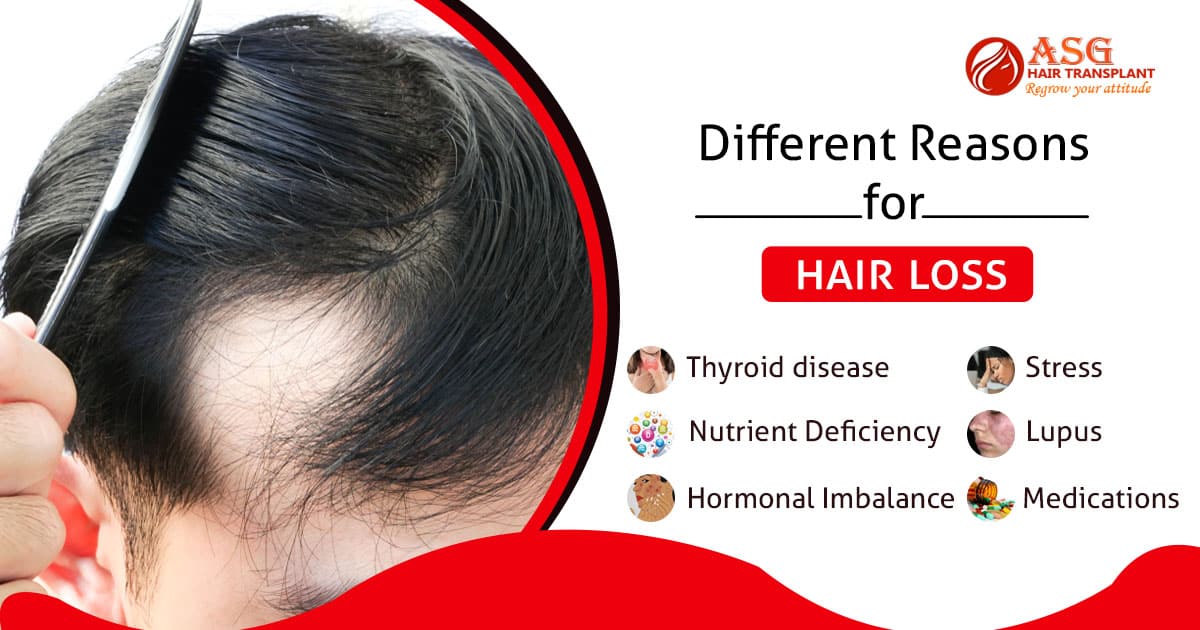
Can Thyroid Disorder Cause Hair Loss?
Can thyroid disorder cause hair loss? Absolutely! This is a question many people grapple with, especially those experiencing unexplained hair thinning or shedding. Thyroid disorders, both hypothyroidism (underactive thyroid) and hyperthyroidism (overactive thyroid), can significantly impact hair health, leading to various types of hair loss. We’ll delve into the fascinating connection between thyroid function and your luscious locks, exploring the underlying mechanisms, diagnostic methods, and effective treatment options.
From understanding the role of thyroid hormones in the hair growth cycle to exploring how hormonal imbalances affect hair follicles, we’ll uncover the science behind this common problem. We’ll also examine other contributing factors, like genetics and nutritional deficiencies, to paint a complete picture of this complex issue. Get ready to unravel the mysteries of thyroid-related hair loss and discover how you can potentially reclaim your healthy, vibrant hair.
Types of Thyroid Disorders and Hair Loss
Thyroid disorders, affecting the thyroid gland’s hormone production, can significantly impact various bodily functions, including hair growth. The relationship between thyroid health and hair loss is complex, varying depending on the specific type of disorder and its severity. Understanding this connection is crucial for appropriate diagnosis and management.
Hypothyroidism and Hair Loss
Hypothyroidism, characterized by an underactive thyroid gland producing insufficient thyroid hormones (T3 and T4), is a common cause of hair loss. The reduced hormone levels disrupt the hair growth cycle, leading to thinner hair, slower growth, and increased shedding. The mechanisms involved are multifaceted. Lower thyroid hormone levels can decrease the size of hair follicles, leading to thinner, weaker strands.
The anagen (growth) phase of the hair cycle shortens, while the telogen (resting) phase lengthens, resulting in more hair follicles entering the shedding phase simultaneously. This often manifests as diffuse thinning across the scalp, rather than patchy baldness. Furthermore, hypothyroidism can also contribute to dry, brittle hair, making it more prone to breakage.
Hyperthyroidism and Hair Loss, Can thyroid disorder cause hair loss
Hyperthyroidism, conversely, involves an overactive thyroid gland producing excessive thyroid hormones. While less frequently associated with hair loss than hypothyroidism, it can still lead to significant hair shedding. The excessive hormones can accelerate the hair growth cycle, leading to a shorter anagen phase. This rapid cycling can overwhelm the hair follicle, resulting in premature shedding. The type of hair loss experienced in hyperthyroidism can vary.
It’s often described as diffuse thinning, similar to hypothyroidism, but can also present as telogen effluvium, a temporary form of hair loss triggered by a significant stressor on the body, in this case, the hormonal imbalance. Additionally, some individuals with hyperthyroidism may experience patches of hair loss, although this is less common.
Comparing Hair Loss in Hypothyroidism and Hyperthyroidism
Both hypothyroidism and hyperthyroidism can cause diffuse hair thinning, affecting the overall density of hair. However, the underlying mechanisms differ. In hypothyroidism, slower hair growth and prolonged resting phases contribute to the thinning, while in hyperthyroidism, rapid cycling and shorter growth phases are the primary culprits. While both can result in significant hair loss, the severity often correlates with the severity of the underlying thyroid disorder and the individual’s response to treatment.
It’s important to note that other factors, such as nutritional deficiencies and stress, can exacerbate hair loss in both conditions.
Other Thyroid Disorders and Hair Loss
Besides hypothyroidism and hyperthyroidism, other thyroid disorders can contribute to hair loss, albeit less commonly. These include thyroiditis (inflammation of the thyroid gland), thyroid nodules, and thyroid cancer. The hair loss associated with these conditions is often secondary to the underlying disease process and its impact on overall health and hormone levels. For example, significant inflammation in thyroiditis can disrupt normal bodily functions, including hair growth.
Comparison Table of Hair Loss Symptoms in Thyroid Disorders
| Disorder | Type of Hair Loss | Severity | Other Symptoms |
|---|---|---|---|
| Hypothyroidism | Diffuse thinning, dry brittle hair | Mild to severe, depending on hormone levels | Fatigue, weight gain, constipation, cold intolerance, dry skin |
| Hyperthyroidism | Diffuse thinning, telogen effluvium (occasionally patchy) | Mild to moderate | Weight loss, nervousness, increased heart rate, heat intolerance, diarrhea |
| Thyroiditis | Diffuse thinning (often temporary) | Variable, often mild | Neck pain, swelling, fatigue, fever |
| Thyroid Nodules/Cancer | Diffuse thinning (if hormonal imbalance present) | Variable, depends on severity and treatment | Lump in the neck, difficulty swallowing, voice changes (cancer) |
The Role of Thyroid Hormones in Hair Growth
Thyroid hormones, specifically triiodothyronine (T3) and thyroxine (T4), are crucial for regulating a wide array of bodily functions, and their influence on hair growth is significant. These hormones don’t directly stimulate hair follicles, but they create an environment conducive to healthy hair growth by impacting various metabolic processes throughout the body. Imbalances in these hormones disrupt this delicate equilibrium, leading to hair loss.Thyroid hormones exert their effects on the hair growth cycle, which consists of three main phases: anagen (growth), catagen (transition), and telogen (resting).
The duration and proportion of hair follicles in each phase determine the overall density and health of the hair.
Thyroid Hormones and the Hair Growth Cycle
T3 and T4 influence each phase of the hair growth cycle. In the anagen phase, thyroid hormones support the proliferation and differentiation of hair follicle cells, contributing to the length and thickness of hair strands. During the catagen phase, a natural shrinking of the hair follicle occurs; thyroid hormones help regulate this process, preventing premature or excessive follicle regression.
Finally, in the telogen phase, the hair follicle rests before entering a new anagen phase; appropriate thyroid hormone levels are essential for the timely transition back to the growth phase. Disruptions in any of these phases, caused by thyroid hormone imbalances, can lead to hair shedding and thinning.
The Impact of Hormonal Imbalances on Hair Follicles
Hypothyroidism, characterized by insufficient production of thyroid hormones, significantly impacts hair follicle function. The reduced availability of T3 and T4 leads to decreased cellular activity within the hair follicle. This results in slower hair growth, miniaturization of hair follicles (producing thinner, shorter hairs), and ultimately, increased hair shedding. Conversely, hyperthyroidism, with its excess thyroid hormone production, can also disrupt the hair growth cycle, although the effects may differ slightly, sometimes leading to hair loss through increased metabolic activity and potentially altered hair follicle cycling.
Cellular Processes Affected by Thyroid Dysfunction
Thyroid hormones regulate various cellular processes within the hair follicle, including protein synthesis, cell proliferation, and cell differentiation. Insufficient thyroid hormone production leads to impaired protein synthesis, resulting in weaker and more brittle hair shafts. The reduced cell proliferation and differentiation cause a decrease in the number of actively growing hair follicles and a prolongation of the telogen phase, contributing to hair thinning.
Furthermore, altered gene expression within the hair follicle due to hormonal imbalances can further exacerbate the problem.
Flowchart: Impact of Thyroid Hormone Levels on the Hair Growth Cycle
The following flowchart illustrates the relationship between thyroid hormone levels and the hair growth cycle:[Imagine a flowchart here. The flowchart would begin with a box labeled “Thyroid Hormone Levels”. This would branch into two boxes: “Normal Thyroid Hormone Levels” and “Abnormal Thyroid Hormone Levels” (either hypothyroidism or hyperthyroidism). The “Normal Thyroid Hormone Levels” box would branch to a box indicating “Healthy Hair Growth Cycle (Anagen, Catagen, Telogen phases balanced)”.
The “Abnormal Thyroid Hormone Levels” box would branch to a box labeled “Disrupted Hair Growth Cycle”, which further branches to show specific effects like “Prolonged Telogen Phase,” “Reduced Anagen Phase,” “Miniaturization of Hair Follicles,” and “Increased Hair Shedding”. Arrows would connect all the boxes to indicate the flow of the process.]
So, you’re wondering if thyroid problems can lead to hair loss? It definitely can! Understanding the hormonal imbalances involved is key, and it made me think about other health issues where underlying factors are crucial, like the increased risk of stroke. Learning about things like high blood pressure and diabetes, which are discussed in this article on risk factors that make stroke more dangerous , highlights how important it is to manage underlying health conditions.
Getting your thyroid levels checked is a good first step in addressing hair loss and overall well-being.
Diagnosing Thyroid-Related Hair Loss

Source: verywellhealth.com
Diagnosing thyroid-related hair loss requires a multi-faceted approach that combines a thorough medical history, physical examination, and specific laboratory tests. It’s crucial to remember that hair loss can have many causes, and ruling out thyroid dysfunction is a key step in determining the appropriate treatment. Pinpointing the underlying cause is essential for effective management.
Medical History and Physical Examination
A comprehensive medical history is paramount in evaluating potential thyroid involvement in hair loss. The doctor will inquire about the pattern, onset, and progression of hair shedding. They’ll also explore symptoms associated with thyroid disorders, such as fatigue, weight changes, intolerance to cold or heat, constipation or diarrhea, and changes in mood or mental state. A physical examination will assess the overall health of the patient, paying particular attention to the thyroid gland itself.
The doctor might palpate the neck to check for any enlargement or nodules in the thyroid. Observing the texture and quality of the hair, along with the presence of any skin changes, can also provide valuable clues.
Thyroid Function Blood Tests
Blood tests are the cornerstone of diagnosing thyroid dysfunction. The most common tests include:
- Thyroid-stimulating hormone (TSH): This test measures the amount of TSH produced by the pituitary gland. Elevated TSH levels usually indicate hypothyroidism (underactive thyroid), while low levels may suggest hyperthyroidism (overactive thyroid). A normal TSH level doesn’t completely rule out thyroid involvement in hair loss, as some individuals with subclinical hypothyroidism (slightly elevated TSH) can experience hair shedding.
- Free thyroxine (FT4): This test measures the amount of unbound thyroxine, the main thyroid hormone, in the blood. Low FT4 levels are consistent with hypothyroidism.
- Free triiodothyronine (FT3): This test measures the amount of unbound triiodothyronine, another thyroid hormone. Elevated FT3 levels can be seen in hyperthyroidism.
- Thyroid antibodies (anti-TPO and anti-Tg): These tests measure antibodies directed against thyroid peroxidase (TPO) and thyroglobulin (Tg). Positive results can indicate autoimmune thyroid diseases such as Hashimoto’s thyroiditis (hypothyroidism) or Graves’ disease (hyperthyroidism).
Interpreting these results requires careful consideration of the entire clinical picture. For instance, a slightly elevated TSH might be clinically insignificant in an asymptomatic individual but could be relevant in someone experiencing hair loss. Conversely, normal TSH levels don’t rule out thyroid involvement, especially in cases of subclinical hypothyroidism or hyperthyroidism.
Comparison of Diagnostic Approaches
While blood tests are the primary diagnostic tool, other methods may be employed in certain situations. For example, a thyroid ultrasound might be ordered if the physical examination suggests a thyroid nodule or enlargement. This imaging technique can visualize the thyroid gland and detect any abnormalities. In some cases, a thyroid scan might be necessary to assess thyroid function more comprehensively.
This involves administering a radioactive iodine tracer and then imaging the thyroid gland to assess its uptake of iodine. The choice of diagnostic approach depends on the individual’s clinical presentation and the doctor’s judgment.
Key Questions a Doctor Should Ask
To determine the potential role of thyroid dysfunction in hair loss, a physician should ask questions encompassing several aspects of the patient’s health and hair loss experience. These include:
- Detailed description of the hair loss pattern (diffuse thinning, patches, etc.).
- Onset and duration of hair loss.
- Presence of other symptoms suggestive of thyroid dysfunction (fatigue, weight changes, cold intolerance, etc.).
- Family history of thyroid disorders or autoimmune diseases.
- Current medications and supplements.
- Dietary habits and nutritional status.
- Stress levels and lifestyle factors.
Treatment Options for Hair Loss Due to Thyroid Disorders

Source: absolutehealthparis.com
So, you’re wondering if a thyroid disorder can cause hair loss? It definitely can, and it’s a common concern. It’s fascinating how seemingly unrelated health issues can be connected; for example, I recently read an article about how an eye test might help detect dementia risk in older adults – check it out: can eye test detect dementia risk in older adults.
Getting back to hair loss, remember to talk to your doctor if you’re experiencing hair thinning, as it could be a symptom of several things, including thyroid problems.
Addressing hair loss stemming from thyroid issues requires a multifaceted approach focusing on restoring thyroid hormone balance. The specific treatment will depend on whether you have hypothyroidism (underactive thyroid) or hyperthyroidism (overactive thyroid), and the severity of the condition. Successful treatment often leads to improved hair growth, but it’s crucial to remember that results may vary and patience is key.
Treatment for Hypothyroidism-Related Hair Loss
Hypothyroidism is treated primarily by replacing the missing thyroid hormone. This is usually achieved through daily medication containing levothyroxine (Synthroid, Levothroid, others). The goal is to bring thyroid hormone levels back into the normal range. Once the underlying hormonal imbalance is corrected, hair regrowth can often be observed, though it might take several months to see significant improvement.
Regular blood tests are essential to monitor hormone levels and adjust medication dosage as needed. It’s important to work closely with your doctor to find the optimal dose for you. In some cases, other medications might be added to manage related symptoms.
Treatment for Hyperthyroidism-Related Hair Loss
Managing hyperthyroidism involves different strategies aimed at reducing excessive thyroid hormone production. Medication options include antithyroid drugs like methimazole (Tapazole) or propylthiouracil (PTU), which help block the thyroid gland’s production of hormones. In some cases, radioactive iodine therapy may be used to destroy overactive thyroid cells, while surgery to remove part or all of the thyroid gland might be considered as a last resort.
Lifestyle modifications, such as stress reduction techniques and a balanced diet, can play a supportive role in overall well-being and potentially improve hair health.
Comparing Treatment Effectiveness and Potential Side Effects
The effectiveness of treatment varies depending on the individual, the severity of the thyroid disorder, and the chosen treatment method. For hypothyroidism, replacing the missing hormone with levothyroxine is generally highly effective in restoring normal thyroid function and often leads to improved hair growth. In hyperthyroidism, the success of treatment depends on effectively controlling the overactive thyroid. While medication and other treatments are generally successful in managing the condition, hair regrowth may take longer and may not be as complete as with hypothyroidism.Potential side effects of thyroid medications can vary.
Levothyroxine, while generally safe and well-tolerated, can sometimes cause side effects like nervousness, insomnia, or increased heart rate, particularly if the dose is too high. Antithyroid drugs used to treat hyperthyroidism can cause liver problems, skin rashes, or a decreased white blood cell count. Radioactive iodine therapy carries the risk of temporary thyroid gland damage. Surgery, though effective, carries risks associated with any surgical procedure.
It is crucial to discuss potential side effects with your doctor to weigh the benefits and risks. Importantly, these side effects are often manageable with appropriate medical monitoring and adjustments to medication or treatment plans.
Lifestyle Modifications Supporting Hair Regrowth
Maintaining a healthy lifestyle can significantly support hair regrowth, complementing medical treatments.
- Balanced Diet: A diet rich in protein, iron, zinc, and vitamins (especially biotin) is crucial for hair health. Include lean proteins, leafy greens, nuts, and seeds in your diet.
- Stress Management: Chronic stress can exacerbate hair loss. Incorporate stress-reducing techniques like yoga, meditation, or deep breathing exercises into your routine.
- Adequate Sleep: Aim for 7-9 hours of quality sleep each night to allow your body to repair and regenerate.
- Gentle Hair Care: Avoid harsh chemicals, excessive heat styling, and tight hairstyles that can damage hair and contribute to breakage.
Remember, consistency and patience are vital. Working closely with your doctor to manage your thyroid condition and adopting healthy lifestyle habits will significantly improve your chances of restoring healthy hair growth.
Other Factors Contributing to Hair Loss (and their interaction with thyroid disorders)
Hair loss, while often associated with thyroid disorders, rarely stems from a single cause. Many factors can contribute, often interacting in complex ways to exacerbate the problem. Understanding these contributing factors is crucial for effective diagnosis and management of hair loss. This section will explore several key elements that can play a significant role.
Genetics and Hair Loss
Genetic predisposition significantly influences hair loss patterns and susceptibility. Androgenetic alopecia, the most common type of hair loss, has a strong hereditary component. Individuals with a family history of hair loss, particularly those with a genetic predisposition to pattern baldness, are at increased risk, regardless of thyroid status. However, a thyroid disorder can accelerate the onset or worsen the severity of genetically determined hair loss.
For instance, an individual genetically predisposed to thinning hair might experience more rapid hair loss if they also develop hypothyroidism. The interaction isn’t simply additive; the hormonal imbalances caused by thyroid dysfunction can interact with genetic factors to amplify the hair loss.
So, you’re wondering if thyroid issues can lead to hair loss? It’s a common question, and yes, it absolutely can. Managing underlying health conditions is key, and sometimes, that involves learning about other conditions that might seem unrelated, like learning effective strategies to manage Tourette syndrome in children , for example. Understanding how various health problems impact the body helps us address hair loss holistically, ensuring we consider all contributing factors.
Ultimately, addressing the root cause is crucial for regrowing healthy hair.
Nutritional Deficiencies and Hair Loss
Nutritional deficiencies, particularly those involving iron, zinc, protein, and biotin, can significantly impact hair growth and contribute to hair loss. These deficiencies are more prevalent in individuals with thyroid disorders due to several factors. Malabsorption issues, often associated with certain thyroid conditions, can hinder nutrient uptake. Additionally, the altered metabolism in hypothyroidism or hyperthyroidism can affect the body’s ability to utilize essential nutrients for hair growth.
For example, iron deficiency anemia, common in hypothyroidism, can lead to telogen effluvium, a type of hair shedding. Supplementation with the deficient nutrients is often a crucial part of managing hair loss in these cases.
Other Medical Conditions and Hair Loss
Several other medical conditions can cause hair loss and frequently coexist with thyroid disorders. Autoimmune diseases, like lupus or alopecia areata, are more common in individuals with thyroid problems, both conditions sharing an autoimmune basis. These conditions directly attack hair follicles, resulting in hair loss independent of thyroid dysfunction, but their simultaneous presence exacerbates the problem. Similarly, certain medications used to treat thyroid disorders or other health issues can have hair loss as a side effect.
Careful medical history review is therefore crucial to identify and address all potential causes of hair loss.
Stress and Aging and Hair Loss
Stress, both acute and chronic, is a well-known trigger for telogen effluvium. The body’s stress response can disrupt the hair growth cycle, leading to increased shedding. Individuals with thyroid disorders often experience higher levels of stress due to the symptoms of the condition and the need for ongoing medical management. This added stress can further contribute to hair loss.
Aging also plays a role, as hair follicles naturally become less active with time, leading to thinner hair and slower growth. This natural aging process is compounded in individuals with thyroid disorders, accelerating the thinning process.
| Factor | Description | Impact on Hair Loss | Interaction with Thyroid Disorders |
|---|---|---|---|
| Genetics | Hereditary predisposition to hair loss patterns, such as androgenetic alopecia. | Increased risk and severity of hair loss. | Thyroid disorders can exacerbate genetically determined hair loss. |
| Nutritional Deficiencies | Lack of essential nutrients like iron, zinc, protein, and biotin. | Weakened hair, increased shedding, and slower growth. | Malabsorption and metabolic changes in thyroid disorders can worsen deficiencies. |
| Other Medical Conditions | Autoimmune diseases (lupus, alopecia areata), medications. | Direct damage to hair follicles or medication side effects. | Increased likelihood of co-occurrence, compounding hair loss. |
| Stress and Aging | Physiological and psychological stress, natural aging processes. | Disruption of hair growth cycle, decreased follicle activity. | Thyroid disorders can increase stress levels and accelerate aging effects on hair. |
Conclusion

Source: asghairtransplant.com
So, can a thyroid disorder cause hair loss? The answer is a resounding yes. Understanding the intricate relationship between thyroid function and hair health is crucial for effective diagnosis and treatment. While hair loss can be distressing, knowing the potential causes and available solutions empowers you to take proactive steps toward restoring your hair’s health and vitality.
Remember, consulting a healthcare professional is key to determining the underlying cause of your hair loss and developing a personalized treatment plan. Don’t hesitate to reach out to your doctor if you’re experiencing hair thinning or shedding – it could be a sign of an underlying thyroid condition that needs attention.
FAQ Corner: Can Thyroid Disorder Cause Hair Loss
What are the early signs of thyroid-related hair loss?
Early signs can be subtle, including increased shedding during showering or brushing, thinning hair overall, or a change in hair texture (becoming dry or brittle).
Can stress worsen hair loss caused by thyroid problems?
Yes, stress can exacerbate hair loss in individuals with thyroid disorders, as it further impacts hormone balance and overall health.
How long does it take to see hair regrowth after thyroid treatment?
Hair regrowth after successful thyroid treatment varies, but it often takes several months to a year to notice significant improvement.
Are there any home remedies to help with thyroid-related hair loss?
While home remedies might offer some support, they shouldn’t replace medical treatment. A healthy diet, stress management, and gentle hair care are beneficial.
